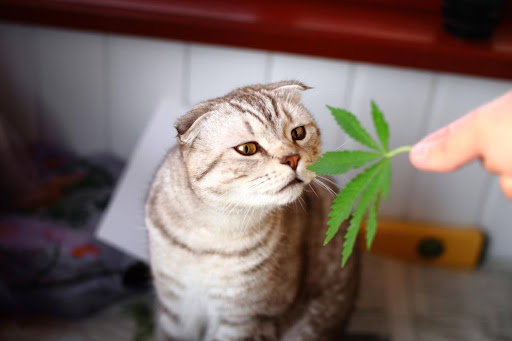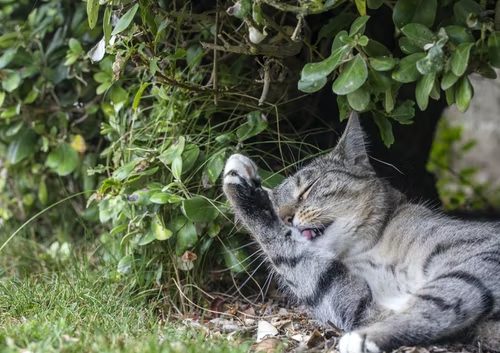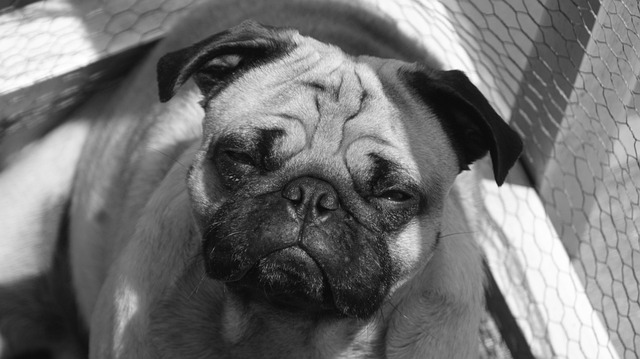Here are 9 Tips To Deal With Pet Odor
Pets make great companions. However, the smell of pets can become a problem if left unchecked. It is difficult to get rid of pet odor completely, but you can take steps to eliminate it and make your house a pleasant place that is pet-free. Read on to find 9 tips that may help you get through.
1. Get a pet odor neutralizer
You can find pet odor neutralizers at any local store that sells home improvement items such as Target. A pet odor neutralizer works by breaking down the chemicals that cause pet odors, making them harmless and non-smelly. These products work best when they are used on carpets, but they cannot be used on wood or furniture because they will stain those surfaces if not cleaned immediately after applying them.
To use a pet odor neutralizer effectively, you need to clean up any urine stains first before applying the product so that all areas are treated equally and all smells are removed completely before they become worse over time due to exposure to air molecules which make them more noticeable than they were before cleaning began!
2. Make sure your pet is drinking enough water
While it's true that your dog or cat may smell for a variety of reasons, dehydration is one of the biggest culprits. If you've noticed that your pet's breath smells bad or that their skin seems dry, they may be dehydrated.
The first thing you can do to reduce dehydration in your pet is to make sure they have access to plenty of fresh water at all times. Moreover, they should also have access to fresh water when they are outside.
If your pet doesn't seem interested in drinking water when it's available, try adding some tuna juice or chicken broth to the bowl and see if that helps entice them. Your vet can also recommend other methods for encouraging your pet to drink more water.
3. Try an enzymatic spray or wash
Enzymes are proteins that are found in all living things. They help break down organic material, which means that they are able to break down waste from pets and other animals as well as dead skin cells and other organic matter that gets trapped in carpets or on furniture. The enzymes in enzymatic cleaners work by breaking down the oils and fats that cause odors in your home. They also kill bacteria that cause bad smells in your home as well as eliminate stains caused by urine or feces on your carpeting or furniture.
These products come in liquid form, but many pet owners prefer a spray. They allow you to cover more surface area in less time, so they're also easier on your back. Sprays are also ideal for use on soft surfaces, such as carpeting or furniture. For hard surfaces like tile flooring, however, a powdered version may be more convenient because it's easier to distribute evenly throughout the room without leaving any residue behind.
4. Clean the litter box regularly
Cleaning the litter box regularly is a great way to keep your home smelling fresh, but it's not always easy. If you're not careful, you might end up with a stinky mess that smells worse than the litter box itself. So to do this, first scoop it out every day.
If you scoop out your cat's feces every day and replace the litter, there will be no build-up of odors in your home. You should also wash out their bedding once per week. The more often you clean out their bedding and change their litter, the better off you'll be when it comes time for spring cleaning!
Second, let it air out for an hour after cleaning it. If possible, leave the door open to allow any bad smells to escape before closing things back up again (and don't forget about that air freshener!). This will help prevent any lingering smells from coming back later on down the road!
Lastly, use baking soda and vinegar to clean your cat's litter box. This should eliminate odors in your cat's litter box.
5. Vacuum often, with an attachment that captures pet hair
Pet dander and hair can quickly accumulate on carpets, so keeping them clean is an important step in controlling pet odors.
If you have a hairy dog or cat, vacuum up the fur daily using a brush attachment. This will help keep it from getting into furniture, on floors and carpets, and ultimately into your clothing and bedding. The vacuum cleaner will remove pet hair from your carpet and furniture as well as dust mites and other allergens which cause odors in your home.
Don't forget about the furniture! It's easy to think of the floor as being more of a problem than it is, but don't overlook what's happening on your sofa or bedspread. The same goes for any other soft surfaces in your home.
6. Wash them daily
Daily bathing helps to keep your pet clean, which will reduce the amount of bacteria and other microscopic organisms on their skin and hair.
This is because bacteria and other microorganisms are what cause most of the odor that comes from pets. If you don't wash your dog every day, the smell will get worse as more bacteria builds up on their body.
It is also important to wash your dog in warm water to remove dead skin cells and dirt. This will help to reduce bacterial growth and therefore odor. In addition to this, it also helps to make their coat shiny again so they look beautiful too!
.
7. Use fans or open windows to air out rooms where pets spend time
If you have a dog or cat, consider buying a small fan that is designed for use in pet areas. These fans are designed to keep dogs cool during hot summer months, but they also work well for removing odors from the air. The fan will circulate air throughout your home and help remove any lingering smells from your pet's bedding or favorite chair. You can also use this fan when you go on vacation to keep their bedding fresh while you're gone!
Another option is opening windows in rooms where your pet spends the most time—especially if there is no air conditioning available during hot summer months (or winters). This is because open windows will allow fresh air into the room which will help remove odors caused by humidity levels increasing over time due to being closed up inside all day long!
8. Make them eat nutritious foods
A balanced diet can help keep your dog or cat healthy, which also helps prevent pet odor. A poor diet can lead to health problems such as obesity or diabetes. These conditions could make your pet's skin more oily than usual, which could lead to more noticeable odors.
The key is to make sure your pet is getting all the nutrients they need from their food. This means that they should be getting enough protein, fats and carbohydrates at each mealtime. If an animal has an unbalanced diet then they may not be able to properly digest their food,
which could lead to digestive problems like diarrhea or vomiting — both of which increase pet odor significantly!
9. Brush their teeth regularly
Brushing your pet's teeth is one of the best things you can do for their health and yours. When you brush, you remove bacteria that causes bad breath and gum disease. It also helps prevent tooth decay and oral cancer.
If you're worried about getting your pet used to brushing their teeth (especially if they're feline), there are some tricks that can help. For example, try using a flavored toothpaste like mint or poultry flavor so they'll find it more appealing than regular toothpaste. You can also play with different kinds of brushes—bristle vs rubber—to see what works best for your pet and make sure they stay interested in the process by rewarding them with treats after each session.
Bad and persistent pet smells are a common problem, and they are notoriously difficult to get rid of. The tips above will help you deal with the problem more effectively.
For more helpful and informative insights, visit here.




